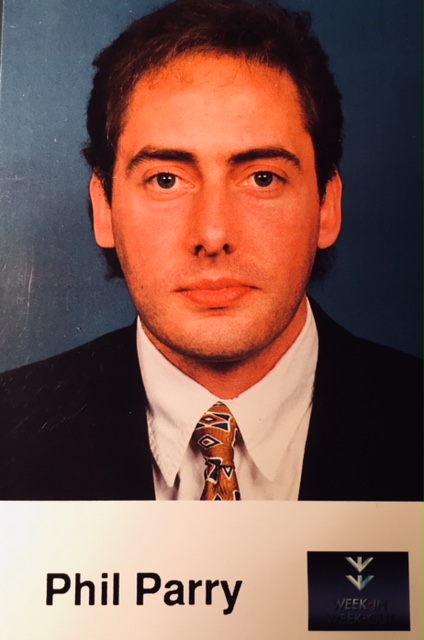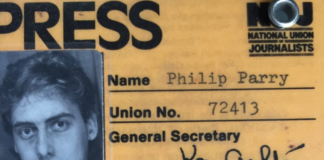- Wordy again part three - 16th February 2026
- ‘Lies, damned lies etc…’ - 13th February 2026
- Missing in action - 12th February 2026

Our Editor, Welshman Phil Parry, spent 23 years with the BBC, and 39 years in journalism (when he was trained to use simple language, avoiding jargon and clichés), beginning at the then biggest-selling paper produced in Wales, but now the latest circulation figures show that readership numbers have plunged still further, even as executives scrape the bottom of the barrel with stories. New technology has completely changed the market, and is about to do so further.
Previously he has described how he was helped to break into the office car of that paper, the South Wales Echo (SWE), when he was a cub reporter, recalled his early career as a journalist, the importance of experience in the job, and made clear that the ‘calls’ to emergency services as well as court cases are central to any media operation.

He has also explored how poorly paid most journalism is when trainee reporters had to live in squalid flats, the vital role of expenses, and about one of his most important stories on the now-scrapped 53 year-old BBC Cymru Wales (BBC CW) TV Current Affairs series, Week In Week Out (WIWO), which won an award even after it was axed, long after his career really took off.
Phil has explained too how crucial it is actually to speak to people, the virtue of speed as well as accuracy, why knowledge of ‘history’ is vital, how certain material was removed from TV Current Affairs programmes when secret cameras had to be used, and some of those he has interviewed.

Earlier he disclosed why investigative journalism is needed now more than ever although others have different opinions, and how information from trusted sources is crucial.
I look on with horror.
The paper I started on – the South Wales Echo (SWE) – is now on barely over 6,000, according to the latest circulation figures, when the previous year it was selling 7,573.
It used to be the biggest-selling newspaper produced in Wales, but long ago surrendered that crown.

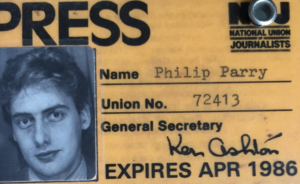 To put it in context when I began my journalistic career there in 1983 it was on over 90,000, and even 10 years ago the SWE was selling more than 24,000!
To put it in context when I began my journalistic career there in 1983 it was on over 90,000, and even 10 years ago the SWE was selling more than 24,000!
New technology has totally changed the game, although it doesn’t explain why the SWE is no longer the biggest selling paper produced in Wales, because ALL media outlets are affected by it.

The newspaper covers the biggest city in Wales, so it should be selling FAR MORE!
Executives there ought to be extremely frightened by what is happening (although they are probably punch drunk!), and the technology behemoths, Google and Facebook are leading the pack among the challengers.
Google’s ‘News Showcase’ will spend about $1bn in 2020-23 on licensing content from more than 2,000 news organisations in more than 20 countries. Facebook’s ‘News Tab’ does something similar, but has lately been scaled back.

Artificial intelligence (AI) promises to make things even more difficult for media companies. ChatGPT only started a few months ago, but it has already gained traction.
It was developed by OpenAI and launched in November 2022.
It is built on top of OpenAI’s GPT-3 family of large language models and has been fine-tuned using both supervised and reinforcement learning techniques.
OpenAI’s valuation was estimated at $29 billion in 2023.

Google’s AI helper, Bard, is still under wraps, but its rival, incorporated into Microsoft’s Bing search engine, is already resolving queries.
Ask the old Bing for a summary of Canada’s last election results and it pointed to sites including CBC News as well as the Globe and Mail. Ask the new Bing and it gives a decent account by itself (along with footnoted links to sources). A user trying to find the New York Times recipe for macaroni and cheese will be stopped by a demand for payment and subscription.
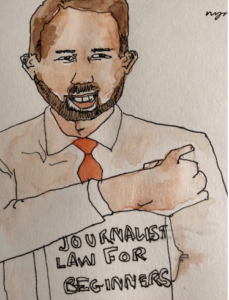
Perhaps in response to the challenges of technology, the media have beefed up their online presence.
The hit rate for the Media Wales website WalesOnline is, of course, far greater than the circulation figures for traditional newspapers, so this was thought to provide a way forward. But knowledge of journalist libel laws among decision-makers there is sketchy, and the then Editor (who became known as the ‘Audience and Content Director’ before leaving altogether), Paul Rowland, threatened to sue me for an accurate satirical piece on The Eye.
In December 2016 Mr Rowland warned me: “I am placing it (the satirical article) in the hands of our lawyers”. He used the extraordinary words “satire is no defence against libel” when in fact it can be.

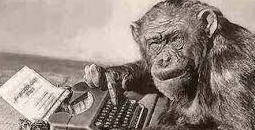
Mr Rowland also has an interesting view of what constitutes news. On his website, he advised a reader anxious to break into journalism: “You might not be interested in ’19 mouth watering street food dishes and where to find them in Wales’, and you might believe it’s not something we should be writing (I wouldn’t agree, but that’s fine). That doesn’t mean it’s clickbait.”

But this kind of journalism is not popular among the staff there. As one reporter told me: “All we seem to do is write lists about the best places to have a cup of coffee in Wales, and the only things we can be sure will get in are ‘stories’ about celebs, rugby or the weather”.
The opening of bars has also proved fruitful territory for WalesOnline. 17 ‘stories’ were published on the website in 2016 about ‘Coyote Ugly’, on St Mary Street in Cardiff.
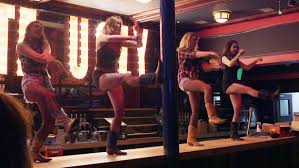
Yet one reader of WalesOnline said sarcastically about their ‘reports’ on ‘Coyote Ugly’: “Scantily clad women dancing on a bar, serving drinks in-between, whilst men look on but can’t touch?No sexism there. At all.” Another said: “I think someone needs to look up what sexism is, because this is exactly that.”
A so-called ‘story’ in December of that year, was headlined: “Watch the Coyote Ugly Cardiff girls practise their moves ahead of opening night”.

An earlier item said: “The girls will start their ‘Coyote Bootcamp’ on Monday ahead of the venues grand opening’. Following a weekend of auditions, owner’s (sic) at Cardiff’s new Coyote Ugly bar have finished their ‘Coyote Search’ and have recruited a number of girls. Nobee, Sally, Rio, Lauren and Chloe have all been chosen to work as Cardiff Coyotes.”

The then owner of ‘Media Wales’, the website ‘WalesOnline’ as well as the newspapers ‘SWE’, ‘Wales on Sunday (WoS)’, ‘The Western Mail (WM)’, the media group ‘Trinity Mirror (TM)’ (now known as ‘Reach (R)’) brought in a ‘Digital First’ strategy as part of the ‘Connected Newsroom’ scheme when “target hit rates” were introduced, to try and counter the trend of falling circulation and embrace the digital future. But as The Eye have reported some digital companies are facing severe challenges and maybe old-fashioned journalism is on the way back.
Now there’s a thought…

The memories of Phil’s decades long award-winning career in journalism (when newspaper circulation was MUCH higher at the start) as he was gripped by the rare neurological disease Hereditary Spastic Paraplegia (HSP), have been released in a major book ‘A GOOD STORY’. Order it now!
Publication of another book, however, was refused, because it was to have included names.
Tomorrow – how accusations of police failings during investigations following the fatal car crash in Cardiff, and revelations that both Gwent Police (GP) and South Wales Police (SWP). have referred themselves to the Independent Office for Police Conduct (IOPC), put centre stage earlier actions by officers in Wales.








